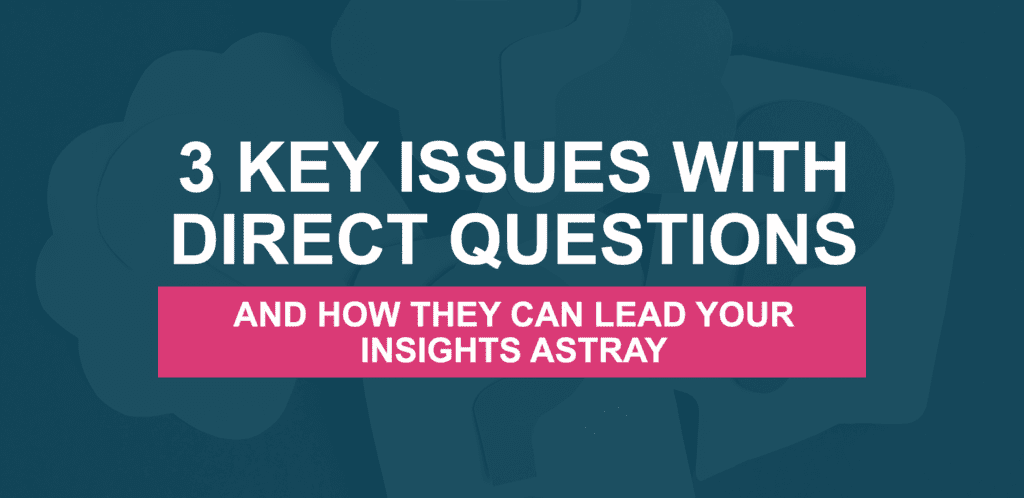
When you want to understand what someone thinks or why they have done something, the tempting first port of call is often to simply ask them. Intuitively, this can feel like the most logical step; it’s how we’re accustomed to gleaning information in our day-to-day lives. However, when it comes to insight gathering and understanding what’s truly driving your customers’ behaviour, behavioural science has shone a light on the dangers of relying on direct questions and how it can lead your insights completely astray…
1. Most behaviour is driven by unconscious process
The first issue is that the vast majority (some studies put it at around 95%) of our behaviour is driven by unconscious processes, meaning that we simply don’t have conscious access to what is it that has driven and influenced our thoughts and actions.
As a result, whilst respondents tend to be very quick to give an answer to any question they’re asked, these answers are merely their post-rationalised (i.e. inaccurate) responses to what they think has influenced them, not what actually has.
2. Questions artificially focus attention
Secondly, the mere act of asking someone a question focuses their attention on the aspect you are asking them about, regardless of whether this has actually had any impact on them in real life. For example, if you’re trying to assess whether a new product looks ‘healthy’, you may be tempted to ask something along the lines of ‘how healthy do you think the product looks?’.
Immediately the respondent starts pondering the concept of healthiness and their associative brain comes up with answers. However, these thoughts may have never crossed their mind or influenced them in real life.
3. Priming and framing issues
The way information is presented to us can dramatically impact how we process and respond to it. As a result, slightly altering the framing of a question can lead to vastly different answers because of the way it primes people to think. For example, one study found that polls show more public support when a question is framed as the government “not allowing” something rather than “forbidding it”.
This further highlights the unreliability (and superficiality) of any subsequent insights. A slight alteration to the wording of any question and you could be led down a completely different route. And because there is no neutral way of asking a question, there’s no ‘right’ way to frame one.
You may now be asking yourself (no pun intended), well how do we understand how people think and behave if we can’t ask them? At Shift Consultancy, we have developed unique methodologies that allow us to do just that. Want to find out more? Get in touch, we’d be delighted to chat.